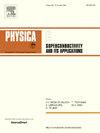对热力学的信仰引发了超导体的错误热力学
IF 1
3区 物理与天体物理
Q4 PHYSICS, APPLIED
Physica C-superconductivity and Its Applications
Pub Date : 2025-09-18
DOI:10.1016/j.physc.2025.1354791
引用次数: 0
摘要
由于超导现象与热力学定律的矛盾,对热力学的信仰迫使超导专家忘记了热力学的基本知识。由于这种信念,多年来没有人引起读者的注意,传统的超导理论与热力学第二定律相矛盾。人们普遍认为,当超导状态的自由能小于正常状态时,就会发生超导转变,这引发了一种错误的说法,即螺线管的电源产生磁化能量而不是磁场能量。只有几本关于超导的书的作者,大部分是未来的诺贝尔奖获得者,没有遵循这个错误的主张。多年来没有人注意到,在临界磁场中超导跃迁的自由能相等是不可能与热力学第二定律相矛盾的。迈斯纳效应违反了热力学第二定律,因为在封闭的戈特循环中产生了负的剩余功。为了避免超导现象与热力学第二定律的矛盾,引起了超导体的假热力学,与能量守恒定律相矛盾。本文章由计算机程序翻译,如有差异,请以英文原文为准。
Belief in thermodynamics has provoked false thermodynamics of superconductors
Belief in thermodynamics has forced superconductivity experts to forget basics of thermodynamics due to a contradiction of superconductivity phenomena to laws of thermodynamics. Because of this belief no one drew reader’s attention during many years that the conventional theory of superconductivity contradicts to the second law of thermodynamics. The common belief that the superconducting transition occurs when the free energy of the superconducting state becomes less than of the normal state has provoked a false claim that a power source of a solenoid creates the energy of magnetization rather than of magnetic field. The authors of only a few books on superconductivity, mostly future Nobel prize winners, did not follow this false claim. No one for many years has noticed that the equality of free energies at the superconducting transition in the critical magnetic field cannot be obtained without contradicting the second law of thermodynamics. The Meissner effect violates the second law of thermodynamics because of the negative surplus work performed in the closed Gorter cycle. The desire to avoid contradiction of superconductivity phenomena with the second law of thermodynamics provoked the false thermodynamics of superconductors, contradicting the law of conservation of energy.
求助全文
通过发布文献求助,成功后即可免费获取论文全文。
去求助
来源期刊
CiteScore
2.70
自引率
11.80%
发文量
102
审稿时长
66 days
期刊介绍:
Physica C (Superconductivity and its Applications) publishes peer-reviewed papers on novel developments in the field of superconductivity. Topics include discovery of new superconducting materials and elucidation of their mechanisms, physics of vortex matter, enhancement of critical properties of superconductors, identification of novel properties and processing methods that improve their performance and promote new routes to applications of superconductivity.
The main goal of the journal is to publish:
1. Papers that substantially increase the understanding of the fundamental aspects and mechanisms of superconductivity and vortex matter through theoretical and experimental methods.
2. Papers that report on novel physical properties and processing of materials that substantially enhance their critical performance.
3. Papers that promote new or improved routes to applications of superconductivity and/or superconducting materials, and proof-of-concept novel proto-type superconducting devices.
The editors of the journal will select papers that are well written and based on thorough research that provide truly novel insights.

 求助内容:
求助内容: 应助结果提醒方式:
应助结果提醒方式:


